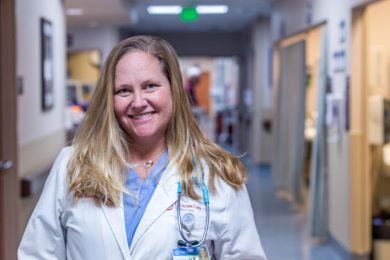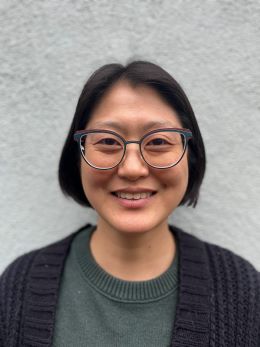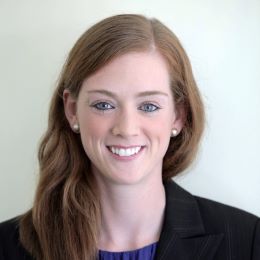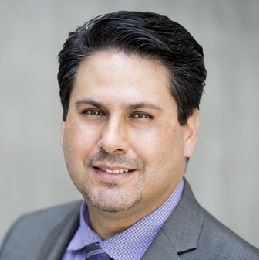
Call to Action: The Time for Treating Substance Use Disorder Is Now
This program will help overcome barriers to California providers wishing to begin offering Medication for Opioid Use Disorder (MOUD) and provide effective education to all interested family physicians. Patient-facing healthcare providers will learn to recognize OUD stigma, communicate more effectively, and be more confident in choosing MOUD.
Available credit:
- 3.75 AAFP Prescribed
- 3.75 AMA PRA Category 1 Credit™
Activities:
- The Time for Treating Substance Use Disorder Is Now
- Break the Stigma, Save a Life
- Prescribing Medication for Opioid Use Disorder
- Addiction Medicine Is Family Medicine!
Learning Objectives:
At the end of this series, learners should be able to:
- Identify common barriers to health care practitioners beginning MOUD
- List steps health care practitioners need to follow to begin administering MOUD
- Enhance knowledge about stigma surrounding substance use disorder and its treatment
- Reflect on how stigma and racism have influenced drug policy in the U.S., including recent responses to the opioid epidemic
- Identify ways to reduce harm (harm reduction) related to substance use
- Identify ways to promote health and dignity for people with opioid use disorder (OUD)
- Identify which patients are appropriate for primary care management of opioid abuse disorder (OUD) versus those who need a referral to addiction specialists
- Describe different modalities of initiating medication for opioid use disorder (MOUD) in the setting of fentanyl
- Determine best practices for continuing MOUD with patients with OUD
- Outline benefits to patients of MOUD in a primary care setting
- Describe public health benefits of MOUD
Target Audience:
This activity is intended for family medicine physicians, and other primary care providers and clinicians caring for patients with substance use disorder.
Participation and Credit:
Learners must register to participate in and receive credit for this online educational activity. Read the target audience, learning objectives, and author disclosures. Study the educational content online and complete the activity evaluation. Your certificate will be available to you as a downloadable link. You may print the certificate, but you cannot alter it. For information on applicability and acceptance of continuing education credit for this activity, please consult your professional licensing board.
Unlabeled Use Disclosure:
This activity will not include discussions of products or devices that are not currently approved for use by the Food and Drug Administration (FDA), and the curriculum clearly indicates this fact.
Support:
This activity is sponsored by the California Academy of Family Physicians and supported by the National Institute on Drug Abuse (NIDA) and the California Department of Health Care Services (DHCS).
Fee:
There is no charge for this activity.
Cultural/Linguistic Competency:
CAFP policy and California state law requires that each learning activity have elements of cultural and linguistic proficiency included in the content. The definition of cultural and linguistic competency is the ability and readiness of health care providers and health organizations to humbly and respectfully demonstrate, effectively communicate, and tailor delivery of care to patients with diverse values, beliefs, identities, and behaviors, in order to meet patients’ social, cultural, and linguistic needs as it relates to patient health. This activity meets these requirements.
Implicit Bias:
CAFP policy and California state law requires that all CME activities comprising a patient care element include either (1) examples of how implicit bias affects perceptions and treatment decisions of physicians and surgeons, leading to disparities in health outcomes and/or (2) strategies to address how unintended biases in decision-making may contribute to health care disparities by shaping behavior and producing differences in medical treatment along lines of race, ethnicity, gender identity, sexual orientation, age, socioeconomic status, or other characteristics. This activity meets these requirements.
Privacy Policy:
The California Academy of Family Physicians (CAFP) is committed to protecting the privacy of its members and customers. CAFP maintains safeguards to store and secure information it has about members and customers. The safeguards may be physical, electronic or procedural. For more information, contact [email protected].
Questions:
For questions regarding the content of this activity or for technical assistance, contact [email protected].
The CAFP has made all reasonable efforts to ensure that information contained herein is accurate in accordance with the latest available scientific knowledge at the time of accreditation of this continuing education program. Information regarding drugs (e.g., their administration, dosages, contraindications, adverse reactions, interactions, special warnings, and precautions) and drug delivery systems is subject to change, however, and the learner is advised to check the manufacturer's package insert for information concerning recommended dosage and potential problems or cautions prior to dispensing or administering the drug or using the drug delivery systems.
Approval of credit for this continuing education program does not imply endorsement by CAFP of any product or manufacturer identified.
Any medications or treatment methods suggested in this CME activity should not be used by the practitioner without evaluation of their patient's condition(s) and possible contraindication(s) or danger(s) of use of any specific medication.
Copyright:
© 2023 California Academy of Family Physicians. No part of this activity may be used or reproduced in any manner whatsoever without written permission except in the case of brief quotations embedded in articles or reviews.

Arianna Campbell, PA-C
Ariana Campbell is an Emergency Department PA with more than 23 years of clinical experience. She is co-founder and also serves as Director and co-Principal Investigator for California Bridge, an organization now known as The Bridge, because of its national reach and whose goal is to transform addiction treatment by ensuring that every hospital in California provides 24/7 access to evidence-based care - treating substance use disorder like any other life-threatening condition.

Sky Lee, MD
Dr. Lee’s primary interests are to improve care and access for vulnerable populations, to empower both patients and providers to be advocates for their communities and to dismantle white supremacy within ourselves and in medicine. She’s been on the faculty of UC Davis Medical Center, and has worked with the California Bridge program. She currently works with people who are incarcerated.

Mary K. Orsulak, MD
Dr. Orsulak is passionate about decreasing barriers to primary care and integrating harm reduction when providing patient care. She serves patients at the Sacramento County Primary Care Clinic, Mercy Clinic at Loaves and Fishes, and the Sacramento County Department of Public Health Sexual Health Clinic. Dr. Orsulak is an attending on the inpatient UC Davis Substance Use Intervention Team and working on projects to improve access and quality of care for people living outside in Sacramento.

Mario San Bartolome, MD, MBA, MRO, FASAM
Dr. Mario San Bartolome is board certified in both Family Medicine and Addiction Medicine. He has experience in all levels of care related to substance use disorders, serves vulnerable populations through FQHCs in Orange County, and is very active in both the American Society of Addiction Medicine and California Society of Addiction Medicine, where he serves on the Board of Directors.

Rebecca Trotzky-Sirr, MD
Dr. Rebecca Trotzky-Sirr is the Medical Director of the Urgent Care Center at LAC + USC, one of the largest public hospitals in the US. She is board certified in Family Medicine and Addiction Medicine, and is faculty in the Department of Emergency Medicine at USC. Additionally, she coordinates expansion of treatment for opioid use disorder as the Southern California Regional Coordinator for The Bridge, formerly the CA Bridge Program.
Conflict of Interest Statements:
The Committee on Continuing Professional Development and CME will be responsible for mitigating any relevant financial relationships disclosed by an individual who may have influence on content, who have served as faculty, or who may produce CME/CPD content for the CAFP. Mitigation may include learner notification, peer review of content before presentation, requirement of EB-CME, changing topics, or even dismissing a potential faculty member.
It is the policy of the CAFP to ensure independence, balance, objectivity, scientific rigor, and integrity in all continuing education activities. All individuals with potential to influence the content of this program have submitted Disclosure of Interest declarations that have been reviewed according to policy. Learner notification of declarations is below. All individuals with relevant financial relationships with ineligible companies have been contacted by CAFP staff or CCPD members, and issues of conflict have been discussed and mitigated.
Faculty Disclosure:
All faculty declare that they have no financial relationships with ineligible companies to disclose.
CME Planners:
The following planners have no financial relationships with ineligible companies to disclose: Jerri Davis, Laurie Isenberg
The AAFP has reviewed Call to Action: The Time for Treating Substance Use Disorder Is Now, and deemed it acceptable for AAFP credit. Term of approval is from 02/22/2024 to 02/22/2025. Physicians should claim only the credit commensurate with the extent of their participation in the activity.
- The session The Time for Treating Substance Use Disorder Is Now is approved for 1.00 Enduring Materials, Self-Study AAFP Prescribed credit.
- The session Break the Stigma, Save a Life is approved for 1.00 Enduring Materials, Self-Study AAFP Prescribed credit.
- The session Prescribing Medication for Opioid Use Disorder is approved for 1.00 Enduring Materials, Self-Study AAFP Prescribed credit.
- The session Addiction Medicine is Family Medicine! is approved for 0.75 Enduring Materials, Self-Study AAFP Prescribed credits.
AAFP Prescribed credit is accepted by the American Medical Association as equivalent to AMA PRA Category 1 Credit™ toward the AMA Physician's Recognition Award. When applying for the AMA PRA, Prescribed credit earned must be reported as Prescribed credit, not as Category 1.
The California Academy of Family Physicians is accredited by the Accreditation Council for Continuing Medical Education to provide continuing medical education for physicians. The California Academy of Family Physicians also designates this educational activity for a maximum of 3.75 AMA PRA Category 1 Credit(s).TM

 Facebook
Facebook X
X LinkedIn
LinkedIn Forward
Forward